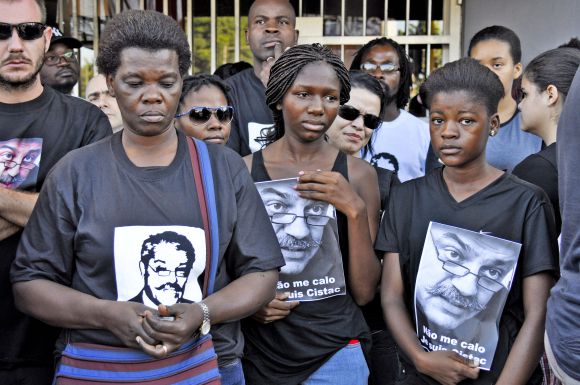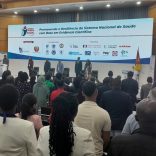Mozambique: Ex-Renamo guerrillas threaten to close party offices across country
France “waiting impatiently” for results of the Cistac murder investigation

The French ambassador to Mozambique, Bruno Clerc, on Thursday insisted on the need to solve the murder of the Franco-Mozambican constitutional lawyer Gilles Cistac, who was gunned down in central Maputo on 3 March 2015.
Clerc was speaking at a ceremony in which the library of the Law Faculty of Maputo’s Eduardo Mondlane University was baptized with the name of Gilles Cistac.
If his family and friends were to mourn the loss of Cistac properly, they must know the circumstances of his death and the motivations of the killers, said Clerc. “I hope that the investigation by the Mozambican authorities makes it possible to clarify these points”, he added.
He urged that the investigations be undertaken in an impartial manner in order to identify the true culprits who will later by tried and sentenced for the murder.
“We are waiting impatiently for the results of the investigation”, said the ambassador, “just as we demand the protection of citizens and the good administration of justice. These are essential elements for the rule of law”.
During the ceremony, the director of the Law Faculty, Armando Ndimande, said that Cistac was an academic and a professional who produced knowledge in the field of public law in Mozambique.
“Gilles Cistac will mark a generation of jurists, since his thought in the field of public law in Mozambique cannot be avoided”, said Ndimande.
Cistac was murdered in broad daylight as he was leaving a café on Eduardo Mondlane Avenue in the heart of Maputo. Although the government demanded that the case be given top priority, the police have made no progress, and admit that they have no clues.
In the weeks prior to Cistac’s assassination, he was subjected to venomous and hate-filled attacks in social media, one of which even called him a “French spy”.
Cistac himself, in an interview he gave to the independent weekly “Savana” shortly before his death, warned that levels of intolerance were becoming “unbearable”.
“There is a group of people who are trying at all costs to kill democracy, freedom of opinion and of thought, through racist and discriminatory discourse”, he accused. “As Mozambicans we should beware, because this endangers democracy”.
The murder has been linked to Cistac’s controversial view that the Mozambican constitution would allow the creation of “autonomous provinces”, as demanded by Afonso Dhlakama, leader of the rebel movement Renamo.
It was suggested that this was the motive for the assassination, and some of the anti-government private media accused the ruling Frelimo Party of responsibility. The Party’s Political Commission strongly rejected such allegations.
Cistac was born in Toulouse in 1961. He first came to Mozambique in 1993 to teach administrative law at the UEM. He rose to become an associate professor, and one of Mozambique’s main experts on constitutional and administrative law. He was granted Mozambican nationality in 2010.
He worked as a consultant with a large number of Mozambican and foreign organisations, including the country’s parliament, the Assembly of the Republic, the Administrative Tribunal, the Ministries of Defence, Tourism and State Administration, and the World Bank.












Leave a Reply
Be the First to Comment!
You must be logged in to post a comment.
You must be logged in to post a comment.